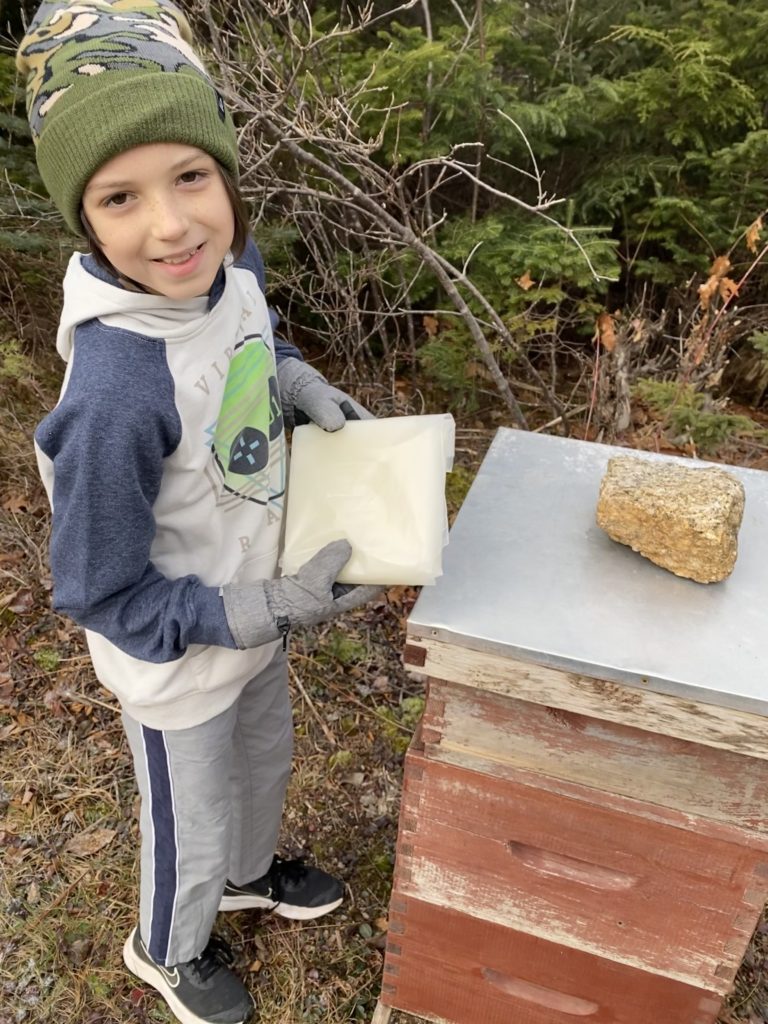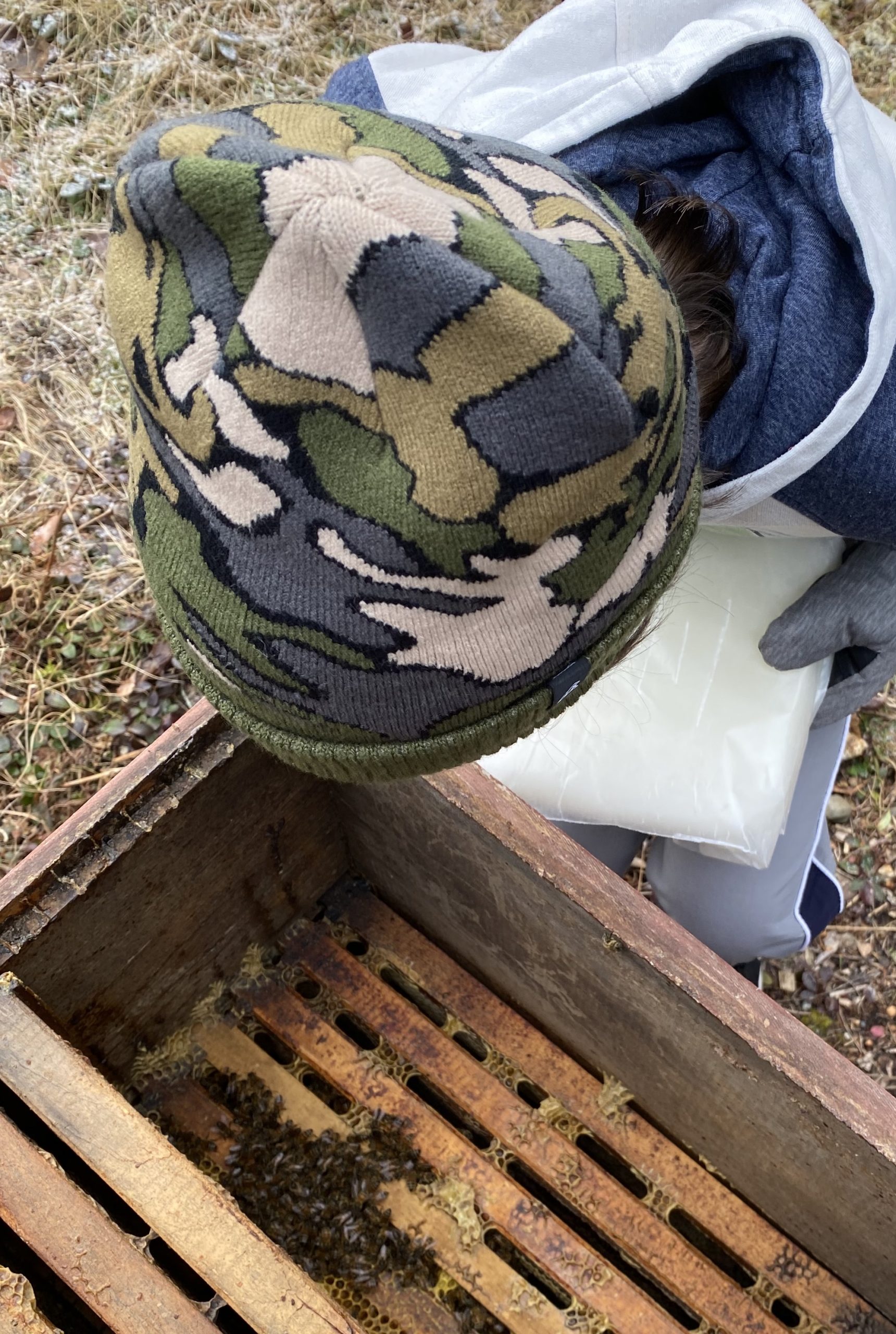Keeping honeybees alive during warm winter days
It’s been a cold Fall this year, with a combination of unseasonably warm days mixed in. This wide swing in temperatures has been hard on the Nova Scotia honeybees. When temperatures in the winter drop below 10°C, honeybees retreat to their hives and create a winter cluster to keep warm. The winter bees eat the stored honey and keep the colony warm by shivering their flight muscles. Each colony needs at least 50-60 pounds of stored honey to prevent starvation in the winter. These large temperature swings throw the bees off; they start eating more honey once they start warming up. They end up burning through their winter honey storage faster than they should. Sadly, they survive the coldest, most challenging winter months, and once Spring comes and before the nectar starts to flow, they begin to starve.

According to the preliminary result of the 15th annual national survey, Beekeepers across the United States lost 45.5% of their managed honeybee colonies from April 2020 to April 2021. There are various factors including pesticides, drought, habitat destruction, nutrition deficits, air pollution, and global warming, with pesticides and habitat destruction regarded as two of the most prominent causes.
The Nova Scotia Beekeepers Association has over 400 active beekeepers in Nova Scotia, accounting for approximately 25,000 hives. Each hive should have about 50-60,000 bees at its peak in midsummer, so just over 1 billion potential bees are pollinating our communities each summer.
As a backyard beekeeper, hive management is essential to look after the bee colony and keep them healthy year-round. Giving them an extra winter food supply is just one of the ways to make sure the colony is strong this Spring.
Originally published in January 2021 – Masthead Newspaper: https://themastheadnews.ca/wp-content/uploads/2022/01/January_2022_Masthead_News_Revised.pdf
